#Kirisaki Shidou
Explore tagged Tumblr posts
Text

0509 because i miss them always
#sal art#milgram fanart#milgram#art#mikoto kayano#kayano mikoto#shidou kirisaki#kirisaki shidou#0509#0905#john kayano#john milgram#john that bites. he is bitey
33 notes
·
View notes
Text

see, indispensable, i’m indispensable
#so about the new video huh#never ask a milgram fan what happened on january 15th 2025#my art#milgram#shidou kirisaki#kirisaki shidou
414 notes
·
View notes
Text

YAMANAKA WHEN I CATCH YOU YAMANAKA
272 notes
·
View notes
Text
MINIGRAM 66: "Don't Forget To Wash Your Hands" Translation


#milgram#milgram translation#minigram#minigram translation#my creation#muu kusunoki#kusunoki muu#shidou kirisaki#kirisaki shidou#amane momose#momose amane#mahiru shiina#shiina mahiru#haruka sakurai#sakurai haruka#kazui mukuhara#mukuhara kazui#mikoto kayano#kayano mikoto#yuno kashiki#kashiki yuno#fuuta kajiyama#kajiyama fuuta
347 notes
·
View notes
Text
Happy valentine’s day (month)










#milgram#valentine’s day cards#ha ha funny#free to use#sakurai haruka#kashiki yuno#kajiyama fuuta#kusunoki muu#kirisaki shidou#shiina mahiru#mukuhara kazui#momose amane#kayano mikoto#yuzuriha kotoko#i’m not flipping the names that’s all we get
207 notes
·
View notes
Text
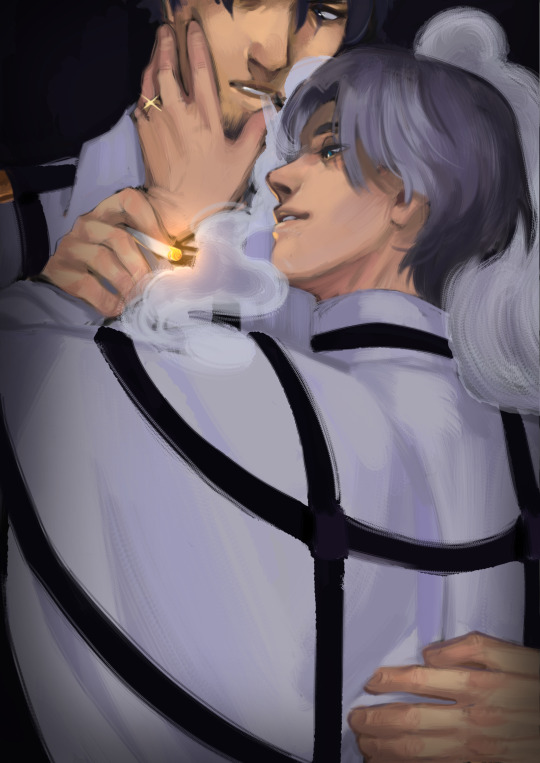
#milgram#0507#kirisaki shidou#kazui mukuhara#I have returned! And I bring you some art I made!#this is specifically for a friend who likes this ship and inspired me to draw this sdjgnksjdg#I'm absolutely back on my bs#no fr though I watched milgram with friends and it spiralled into a 76 page long theory/analysis document (that's not done yet)#as for this picture#Shidou canonically doesn't wear his wedding ring on his finger but please just ignore that fact in favor of symbolism#this picture actually suits their t1 personalities better than their t2 ones#for Shidou in particular#chesh art
481 notes
·
View notes
Text


#milgram#ミルグラム#shidou kirisaki#kirisaki shidou#milgram fanart#the flowers are lily of the valley#lxm fanart#this took such a long time LMAO i have no idea how many hours i spent on this but its too many#took up half my vacation just drawing this. whoops
192 notes
·
View notes
Text
in light of recent events

138 notes
·
View notes
Text
Okay so.
Let's talk about Amane.
Cause the discussion around her is so black and white, it kinda infuriates me???
There's the people who think she's the fucking devil himself, and there's people who think she's an angel who's done absolutely no wrong ever.
And.
Please
I beg of you
Both of you
Shut the fuck up
I'm going to die.
So let's get one thing out of the way before I continue
AMANE WAS, IS, AND FOREVER WILL BE A VICTIM.
Ok?
Everyone understand that?
Ok, good.
Now.
With that in mind.
I REALLY don't think Amane should have been voted "innocent" the second time around.
Listen.
I tried so hard to be on the inno side. And I held out hope, right?
Surely it's the right thing to do, she IS a kid afterall.
And she is!
And in all other circumstances, I think voting her innocent would be the right thing to do.
But here's the thing.
I think we fumbled the whole "What is the prisoner gonna take from this?" Aspect of Amane's trail.
I think we were so blinded by the abuse she's shown to suffer that we didn't really... THINK about what's actually going on in her head.
That sounds whack as fuck BUT LISTEN, RIGHT
HEAR ME THE FUCK OUT.
Since she was voted guilty the first time, the result was that cracks formed in her world view, and it began to shatter her mental health.
When she next spoke to us...
Amane was not presenting herself as just herself.
But rather as herself AND her religion.
SHE TELLS US THIS, EXPLICITLY






Even if it wasn't a case of "this is Amane and her alter" like Es said. Even if it's not REALLY her religion speaking to us.
She's speaking on BEHALF of the religion.
Do you understand what I'm saying here?
By voting Amane innocent, we didn't just deem HER innocent
We deemed her religion innocent.
And yes, the state she was in at the time was absolutely awful. But, as it stands. It was progress.
This voice drama wasn't a defense of her. It was a defense of her religion.
She was shaken, because who wouldn't be shaken after having their world view challenged?
And instead of being firm. Instead of saying "Your religion is flawed. You were abused."
We backpedaled because we felt bad for her.
And I went along with it because of the pressure on all sides... But now that we're seeing the results, I definitely don't think this was a good decision.
She's not taking her innocent verdict as
"I'm innocent because I'm a victim of abuse and my actions are justified"
She took her innocent verdict as.
"I'm innocent because my religion is correct, therefore my actions are justified"
HELL.
SHE EVEN SAYS THAT SHE'S GOING TO GO ON TO CONTINUE PRACTICING HER RELIGION IN THE START OF HER TRAIL 2 MUSIC VIDEO


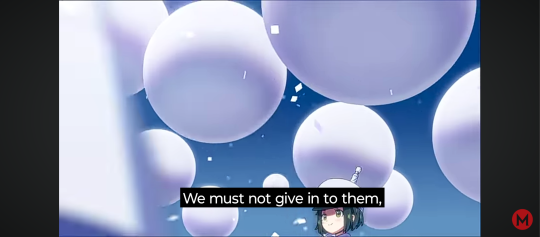

She wasn't a depressed husk because we told her "You shouldn't have defended yourself. Your abuse was justified." She ALREADY thought her abuse was justified.
She was like that because we told her "Your world view is wrong. This religion isn't what you think it is. It's not sunshine and rainbows. This is abuse."
She was like that because we put cracks in her world view
Don't believe me?
Compare and contrast her music videos themselves.
Notice how the first is cutesy, sunshine, rainbows, the works?
Now look at the second one.
She's on the defense. And the cracks are starting to form.
Compared to the first video, where her "punishments" are shown in cute little montages, in the second video, we get raw, unfiltered glimpses into what she endured.
She was starting to see what her religion truly was.
And here's where I think we failed as voters.
We were so caught up in "She's a child! She's a victim! She didn't do anything wrong!"
That we COMPLETELY overlooked what was being judged in Amane's eyes.
We were so shell shocked as viewers, and we felt so sorry for her, the person, the child, we didn't see that in her eyes we were judging her faith.
Essentially.
We were SO blinded by our own morality...
That we ended up telling Amane that the cult that abused her was innocent, and that the abuse she suffered was justified.
We didn't tell her what she needed to be told
WE know she's a child. WE know she suffered abuse.
SHE didn't.
She needed to be told as much through a guilty verdict.
Basically
Our INTENDED message wasn't the RECIEVED message.
We did a complete 180°
I think, if we wanted to go the whole "she's innocent cause she's just a kid" route, we shouldve voted her innocent from the beginning, then kept going with the innocent verdict.
But it was too late for that, she was voted guilty, and our backpedaling did some real damage.
When she was voted guilty, she started to have cracks in her world view. She started to have doubts the religion was wrong. But then we backpedaled and told her it was right.
And instead of sticking with the "your religion is wrong" we turned it around.
While what we were SAYING is "you're not wrong for killing your abuser" what SHE HEARD was "Your religion is not wrong, the rule breakers needed to be punished"
SHE EVEN SAYS AS MUCH HERSELF
"I am thankful for the fact that you have forgiven me. For I was able to follow through with my faith due to such. And at the same time, I have also realized my mistakes."
So by voting her innocent, because in her mind we were judging her cult and not her. We accidentally told her that her abusers were right.
Does that make any sense?
Obviously in a traditional sense Amane is innocent.
But BY NO MEANS is this a traditional case!!!
The suspect on trial wasn't Amane but her religion.
We failed to see that.
And
We.
Fucking.
FUMBLED.
And because we told her that, blinded by her brainwashing, she's a victim, yes, but now she's a victim who's perpetuating the cycle of abuse.
And don't you DARE tell me she's not perpetuating the cycle.
People got hurt.
Shidou is obvious, but let's talk about Fuuta.
Obviously, Fuuta isn't dumb for falling victim to the cult and seeking comfort in religion after all he's been through.
But I think it's a bit stupid to say that he hasn't been brainwashed as well.
And I think it's REALLY stupid to say Amane is just... y'know okay for doing this?
She indicates in her new lines that her religion won't be flawed, because there won't be any who break the rules (or oppose her)
"I was mistaken. The religion I believed in was incomplete. That's why there were people who broke the rules. Those who opposed it. Milgram cannot be depended on either. In that case, I could just make it! My own original! Ahahahaha..! Hahahaha!”
If someone breaks the rules, she is most likely going to punish them like she was punished for breaking the rules. If someone opposes her religion, they'll die.
And thanks to us, she thinks that's okay
So in conclusion.
Y'ALL WE MISSED THE WHOLE ASS POINT OF AMANE'S TRAIL, AND NOW WE'RE PAYING THE FUCKING PRICE.
So yeah
She should've been voted guilty for her own sake.
Idk I feel like I'm gonna get flamed.
BUT FUCK IT
WE BALL.
#rambling#milgram#milgram project#amane momose#momose amane#milgram fuuta#fuuta kajiyama#kajiyama fuuta#shidou kirisaki#kirisaki shidou
98 notes
·
View notes
Text

353 notes
·
View notes
Text

do you miss them\
(remake of this art from 2024, one year difference.. a lot changed....)

#milgram fanart#milgram#art#sal art#shidou kirisaki#kirisaki shidou#shidou's wife#shidou wife#hana kirisaki#05xx
20 notes
·
View notes
Text

what if this was my last straw
122 notes
·
View notes
Text
Organ donation, compassion fatigue, and Japanese perspectives on brain death
I don’t think Shidou’s sin was actually a crime (as in, it was perfectly legal) and I’m going to explain why. This is essentially a very long Kirisaki Shidou Is Not An Organ Harvester post
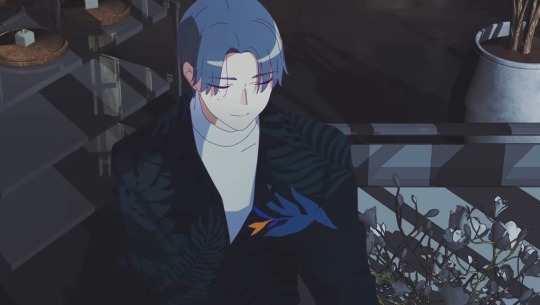
To start: Shidou’s sin was convincing the families of braindead patients to donate their relatives’ organs. He confirms doing this in his T2 voice drama, and the way he words it makes it clear he thinks of it as murder. (He does say that this is only half of his sin, but we’ll get to the other half later.)
You know, I… continuously tried to persuade the relatives of braindead patients who were against organ transplants.
“In order to save the life of someone you don’t know, please let me kill your family member,” I told them.
It doesn’t even take much thinking to realize how cruel that is, but… I didn’t realize that until the very end.
Translation used: https://youtu.be/9xmokVJ-6x4?si=VgcIp5LCdNnUwqUW
Brain death is the irreversible, complete loss of brain function, meaning there’s no chance for a braindead patient to ever come back. Because of this, some people may feel that removing life support from a braindead patient doesn’t constitute murder. It definitely doesn’t constitute murder from a legal perspective, but it makes sense why someone might think of it as murder— especially in Japan.
Japanese perspectives on brain death
In evaluating Shidou’s case, we have to consider the cultural context within which it was written. Many people in Japan do not consider brain death as human death, and brain death cannot be declared without consent from the family and the intention to donate organs. In fact, braindead patients are not removed from life support until their heart stops beating. Shidou isn’t being dramatic when he frames his words as basically saying, “please let me kill your family member.”
Brain death is a very contentious topic in Japan—Doctors are put under scrutiny for declaring brain death and performing organ transplants. It’s important to know that in Japan, brain death only exists in relation to organ transplants. And only certain designated hospitals will do this. Even more so, if a person writes an advance directive asking to be taken off of life support in the case of brain death, doctors are not required to follow it. And many of them don’t, out of fear of the patient’s family lashing out at them.
Only in 2010 was Japan’s Organ Transplant Law revised so that organ transplants could be performed without prior consent from the brain dead patient (now only requiring consent from the family).
Here’s a couple of scholarly articles on the topic if you’d like to read more about it.
https://doi.org/10.1186%2Fs12910-021-00626-2
https://doi.org/10.1353/nib.2022.0019
Another very important facet of this discussion is how low organ donation rates are in Japan. To give you an idea, here’s a chart showing the per million population of donations after brain death (DBD) and donations after cardiac death (DCD) in a few different countries.
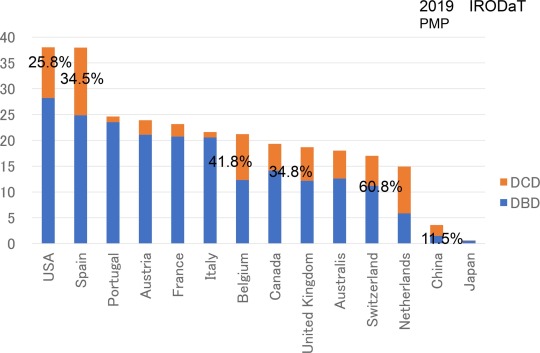
Sourced from this article, which has some other interesting statistics as well: https://doi.org/10.1016/j.tpr.2023.100131
As you can see, Japan’s rates are astronomically low in comparison to other countries. This helps to contextualize why Shidou had to try so hard to persuade families to donate, and why he later became extremely desperate when his wife’s life was on the line.
I’ve seen a lot of people confused about Shidou’s crime, and many speculations about him doing heinous things such as organ harvesting or purposefully botching surgeries—but I think this is because we’re approaching the case with a western perspective. As we know, many (if not all) of the Milgram prisoners represent a controversial social issue. Brain death is not nearly as divisive in western medicine as it is in Japan, so it’s easy to overlook the idea that all Shidou actually did was take organs from braindead patients. Perspectives on brain death in Japan have changed a lot in the past couple of decades, but it’s still quite controversial; because of this, I truly believe that this is the point of contention behind Shidou’s case, and there’s nothing more sinister secretly going on.
Compassion fatigue
Compassion fatigue is commonly thought to be the manifestation of secondary traumatic stress and burnout, caused by caring for others who are in stressful situations. This commonly affects people who work in healthcare.
I believe Shidou experienced compassion fatigue from working in the hospital, as he exhibits some of the symptoms—in particular, a reduced sense of empathy and a detachment from others.
I feel that Throw Down makes a lot of sense when you view it from this angle.
Lyrical analysis on Throw Down
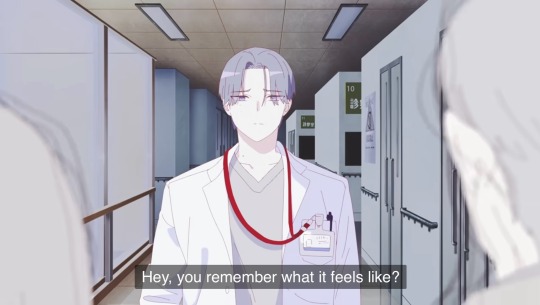
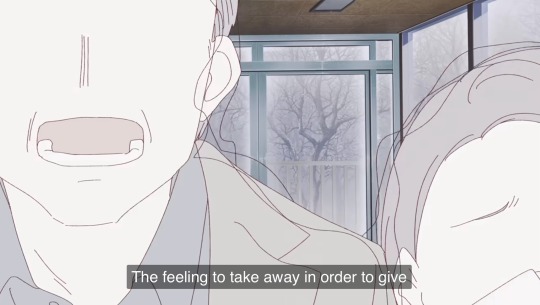
Shidou expresses that he no longer remembers what it feels like to take away in order to give.

Pomegranates represent death in Greek mythology, and I believe that’s what they represent here too. Shidou has become desensitized to death; the pomegranate no longer has any flavor.
If it’s not needed, I’m not interested
Shidou only thought about what was physically necessary to keep a patient alive, and remained emotionally distant.
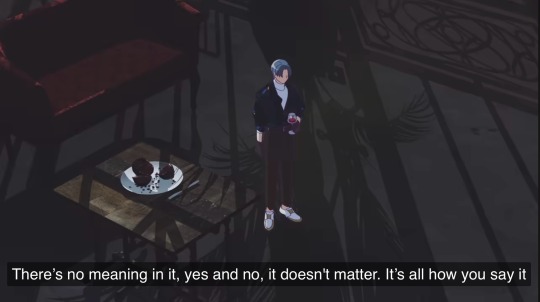
They’re dead either way, so it doesn’t really matter to him.
Now slowly close your eye, put your regret on display
Wish for being there for someone
With the same expression no matter who comes
This is the part that most makes me think of compassion fatigue—Shidou had difficulty expressing empathy for grieving families and had to fake it.
I don’t feel scared because I don’t know
Shidou didn’t understand what it was like to be in that situation. But now that it’s happened to him… he understands. And, looking back, he understands how unkind he had been about all of it. This is why he considers himself to be a murderer, why he truly believes that he has killed many people.
Ethics is a delusion
This is a line that definitely struck me as odd for awhile, but I think it makes sense in the context of his situation. His sin was not illegal—but is it ethical? That’s what all of this—whether you forgive him or not—hinges on.
The other half of Shidou’s sin
Going back to what I said earlier, Shidou’s sin wasn’t only convincing families to donate their relatives’ organs. His sin is also transplanting his son’s organs in an attempt to save his wife.
I believe that Shidou’s family got into a car accident, which resulted in his older child experiencing brain death and his wife being left in critical condition (and the younger child presumably died immediately). Considering the views surrounding brain death in Japan, it would have been difficult to find a donor, so Shidou became desperate enough to transplant his son’s organs. Since he’s the father, there wouldn’t have been any issues with receiving consent for the transplant.
Some people believe it’s the other way around—that he transplanted his wife’s organs into his son—but I believe otherwise, for multiple reasons.
In Shidou’s T1 voice drama, he expresses relief at the fact that his judgment is being determined by Es, who is a child. This makes sense if he feels that he killed his son.
Instead of being told by the law that I won’t be forgiven, I wanted a child like you, Es, to tell me that.
I feel sorry that you had to be given this role. And, I truly apologize for being so insistent about sentencing me to death as well… But, you’re perfect. You’ll give me the ending I’m most suited for.
Translation used: https://youtu.be/C4MiQ3V3YjQ?si=hPmlUkc6BfdcacNg
Additionally, a few scenes in Triage…
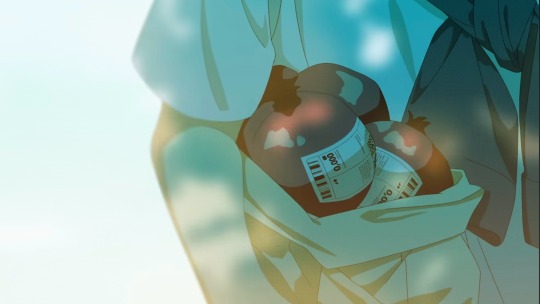
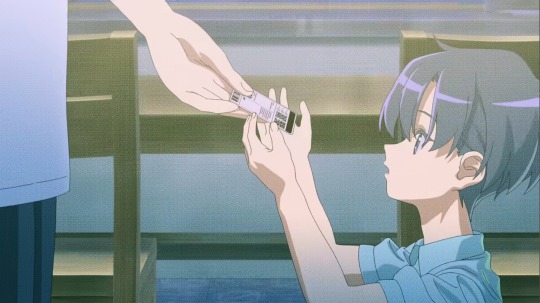
As stated before, I interpret the pomegranates to represent death. Shidou brings home three pomegranates, one for each of his family members. He later hands his son a price tag from the pomegranates—a representation of Shidou sentencing him to death.
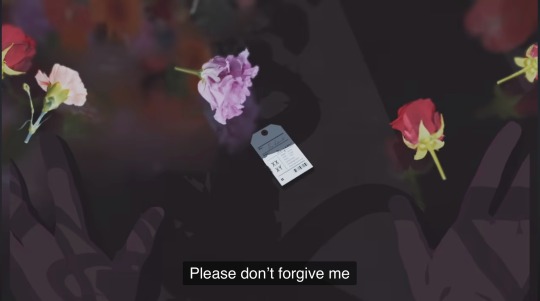
And at the end of Throw Down, an organ tag falls out of the flower person. The name seems to read “Rei Kirisaki” and has XY marked, probably indicating that the donor is male.

Not to mention, it’s much more plausible for the flower person to represent Shidou’s wife rather than his son. When the person falls apart, there’s a shot of a red rose—the flower most known for representing romantic love—falling out of them.
Final thoughts and conclusion
To summarize: Shidou used to routinely try to persuade the families of braindead patients to donate their relatives’ organs. Despite that the prevailing thought in Japan is that brain death is not human death, Shidou did not think of it this way.
Shidou’s family later got into an accident; he transplanted his braindead son’s organs in an attempt to save his wife, but it was a failure, resulting in her death. This situation made him reflect on his past actions—he did not consider it murder before to discontinue life support on a patient, but now that he did it to his son, his perspective has changed. Everything he has done is within the confines of the law, but he is now burdened with immense guilt and thinks himself a murderer. Not just in regards to his son, but to all of the patients that he had pulled the plug on.
Side note: I don’t think having low empathy is inherently a bad thing (I have naturally low empathy), but in this context it would make sense for Shidou to feel bad about lacking empathy.
Side note 2: Shidou is a surgeon, so it is entirely possible he personally performed the transplant on his wife. Operating on family members isn’t illegal or anything, but is widely considered to be unethical and not really a good idea.
Well, that’s all I had to say—Feel free to either add on to this theory or debate me on it. This post ended up quite long, so thank you for reading!
220 notes
·
View notes
Text
i cut out the prisoners from eeo store's new merch theme!! (maybe ill upload a cleaner version later)


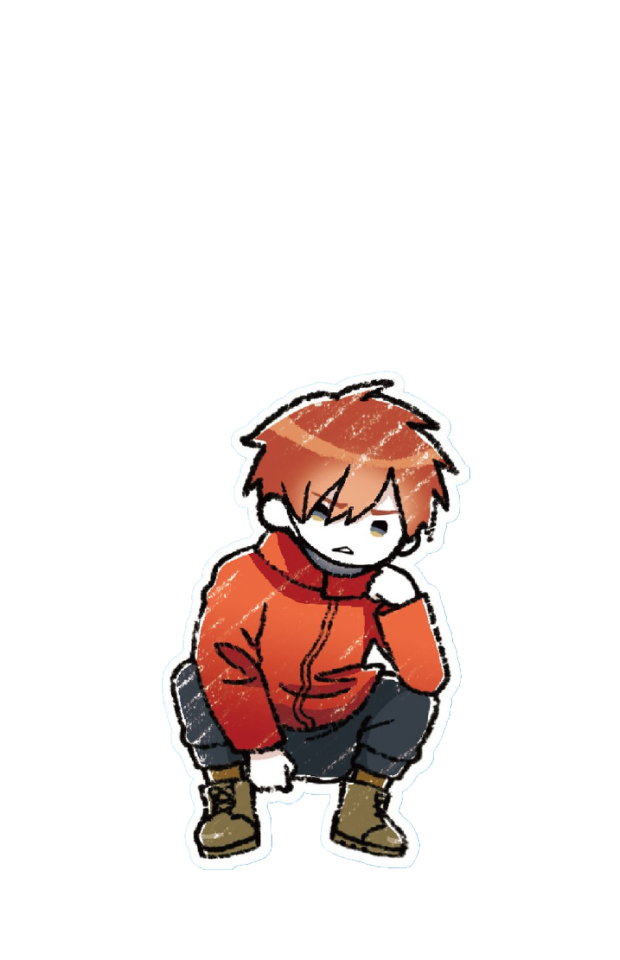
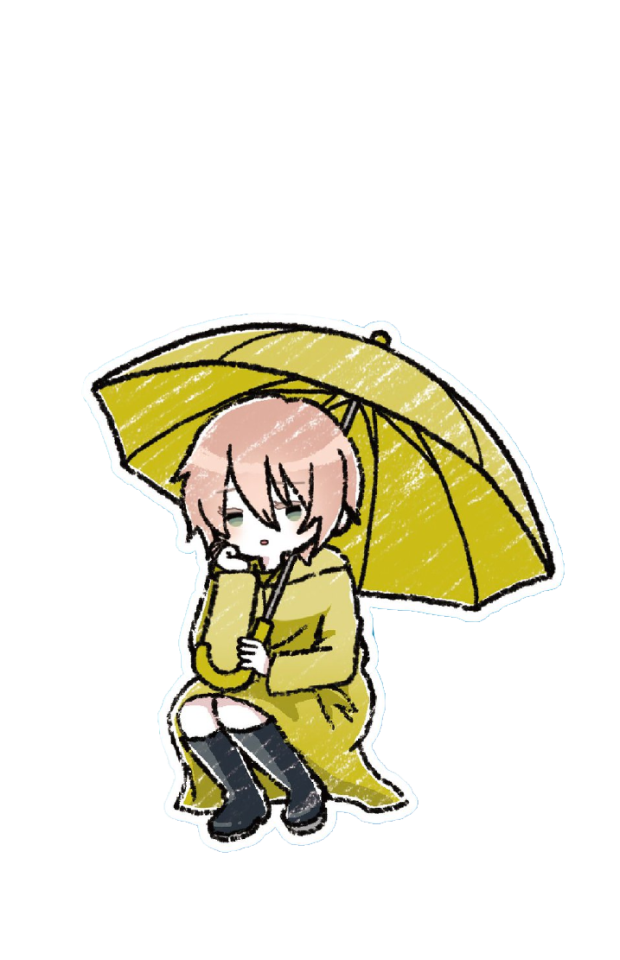
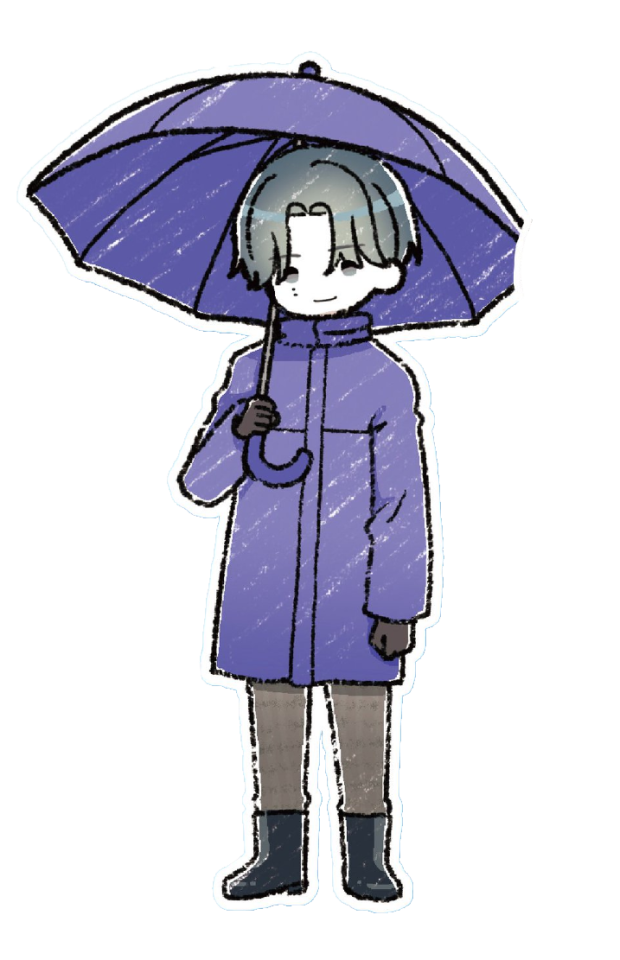
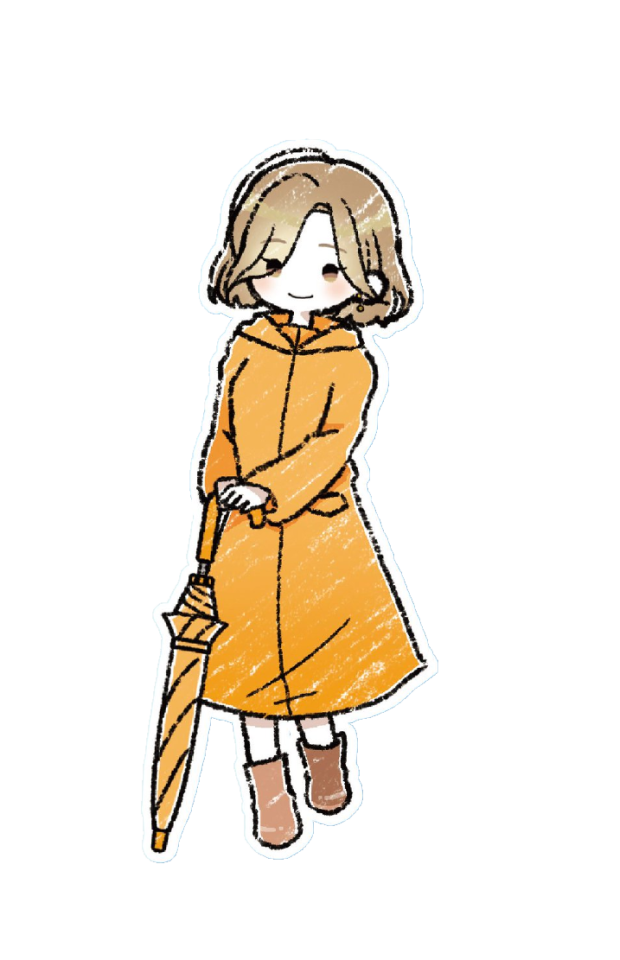


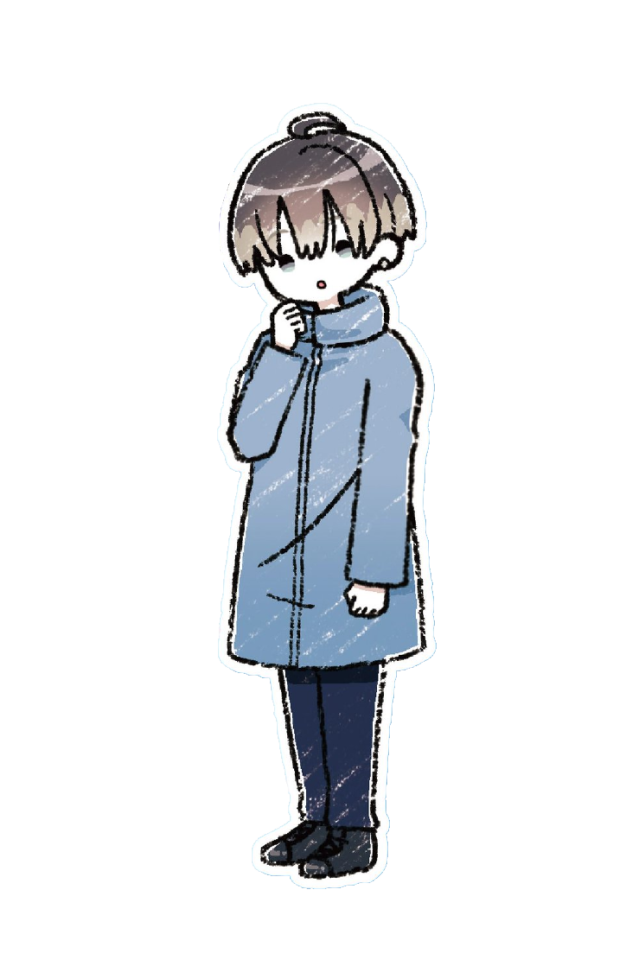
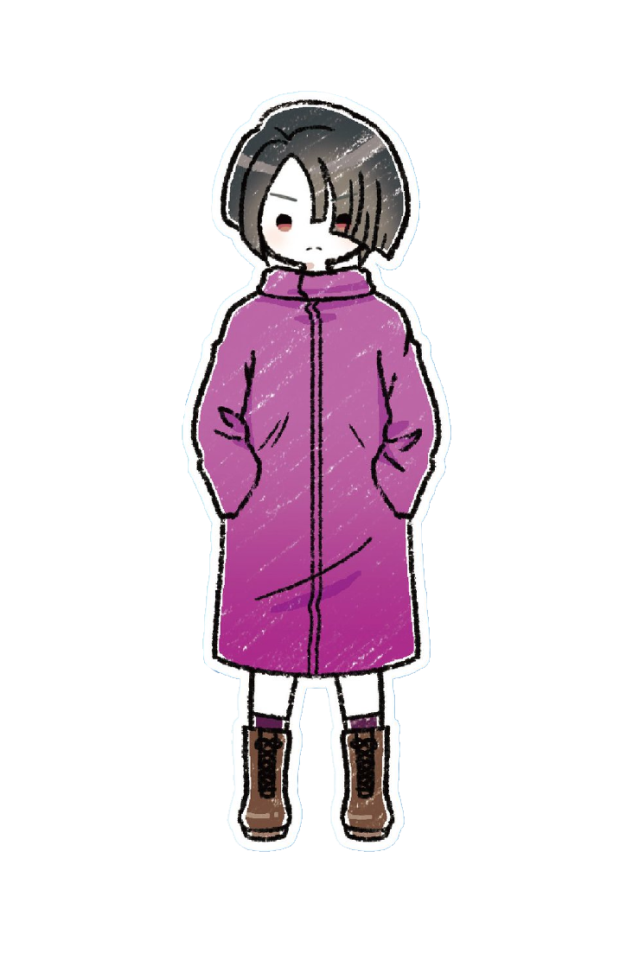
(art is NOT mine, feel free to use however you wish!)
#milgram#oh boy here we go#haruka sakurai#sakurai haruka#yuno kashiki#kashiki yuno#fuuta kajiyama#kajiyama fuuta#muu kusunoki#kusunoki muu#shidou kirisaki#kirisaki shidou#mahiru shiina#shiina mahiru#kazui mukuhara#mukuhara kazui#amane momose#momose amane#mikoto kayano#kayano mikoto#kotoko yuzuriha#yuzuriha kotoko#LOOK AT YUNO!!!!!! LOOK AT MUU!!!!!!!!!!!#AAAAAA MY GIRLS I LOVE THEM
721 notes
·
View notes
Text











oh cool, I'm glad everyone is looking so... well.........
#milgram#milgram project#milgram spoilers#milgram trial 3#(there wasn't any real reason for the order I just put images of similar sizes next to each other because otherwise tumblr crop broke 'em)#hence why amane (tiny) and haruka (long) had to be by themselves#haruka sakurai#sakurai haruka#yuno kashiki#kashiki yuno#fuuta kajiyama#kajiyama fuuta#muu kusunoki#kusunoki muu#shidou kirisaki#kirisaki shidou#mahiru shiina#shiina mahiru#kazui mukuhara#mukuhara kazui#amane momose#momose amane#mikoto kayano#kayano mikoto#kotoko yuzuriha#yuzuriha kotoko#es milgram
84 notes
·
View notes
Text

MILGRAM premise
#milgram#mikoto kayano#kayano mikoto#fuuta kajiyama#mahiru shiina#amane momose#shidou kirisaki#shiina mahiru#haruka sakurai#kirisaki shidou#sakurai haruka#kajiyama fuuta#momose amane#yuno kashiki#kashiki yuno#muu kusunoki#kusunoki muu#mu kusunoki#kusunoki mu#kazui mukuhara#mukuhara kazui#yuzuriha kotoko#kotoko yuzuriha
421 notes
·
View notes